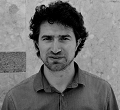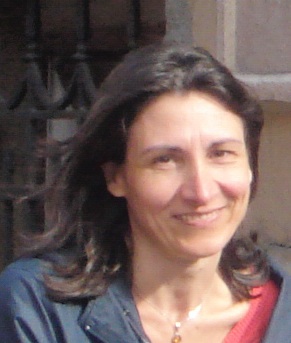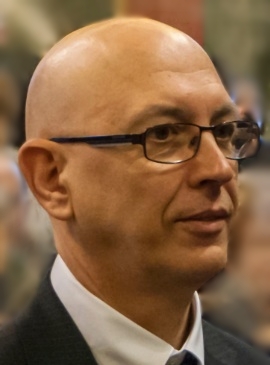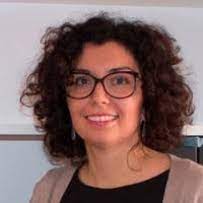Studying at the University of Verona
Here you can find information on the organisational aspects of the Programme, lecture timetables, learning activities and useful contact details for your time at the University, from enrolment to graduation.
Academic calendar
The academic calendar shows the deadlines and scheduled events that are relevant to students, teaching and technical-administrative staff of the University. Public holidays and University closures are also indicated. The academic year normally begins on 1 October each year and ends on 30 September of the following year.
Course calendar
The Academic Calendar sets out the degree programme lecture and exam timetables, as well as the relevant university closure dates..
| Period | From | To |
|---|---|---|
| Primo semestre | Oct 4, 2021 | Jan 28, 2022 |
| Secondo semestre | Mar 7, 2022 | Jun 10, 2022 |
| Session | From | To |
|---|---|---|
| Sessione invernale d'esame | Jan 31, 2022 | Mar 4, 2022 |
| Sessione estiva d'esame | Jun 13, 2022 | Jul 29, 2022 |
| Sessione autunnale d'esame | Sep 1, 2022 | Sep 30, 2022 |
| Session | From | To |
|---|---|---|
| Sessione Estiva | Jul 15, 2022 | Jul 15, 2022 |
| Sessione Autunnale | Oct 14, 2022 | Oct 14, 2022 |
| Sessione Invernale | Mar 14, 2023 | Mar 14, 2023 |
| Period | From | To |
|---|---|---|
| Festa di Tutti i Santi | Nov 1, 2021 | Nov 1, 2021 |
| Festa dell'Immacolata Concezione | Dec 8, 2021 | Dec 8, 2021 |
| Festività natalizie | Dec 24, 2021 | Jan 2, 2022 |
| Festa dell'Epifania | Jan 6, 2022 | Jan 7, 2022 |
| Festività pasquali | Apr 15, 2022 | Apr 19, 2022 |
| Festa della Liberazione | Apr 25, 2022 | Apr 25, 2022 |
| Festività Santo Patrono di Verona | May 21, 2022 | May 21, 2022 |
| Festa della Repubblica | Jun 2, 2022 | Jun 2, 2022 |
| Chiusura estiva | Aug 15, 2022 | Aug 20, 2022 |
Exam calendar
Exam dates and rounds are managed by the relevant Science and Engineering Teaching and Student Services Unit.
To view all the exam sessions available, please use the Exam dashboard on ESSE3.
If you forgot your login details or have problems logging in, please contact the relevant IT HelpDesk, or check the login details recovery web page.
Should you have any doubts or questions, please check the Enrollment FAQs
Academic staff
 federico.busato@univr.it
federico.busato@univr.it
 mariano.ceccato@univr.it
mariano.ceccato@univr.it
 mila.dallapreda@univr.it
mila.dallapreda@univr.it
 giulio.mazzi@univr.it
giulio.mazzi@univr.it
 daniela.pianezzi@univr.it
daniela.pianezzi@univr.it
Study Plan
The Study Plan includes all modules, teaching and learning activities that each student will need to undertake during their time at the University.
Please select your Study Plan based on your enrollment year.
1° Year
2° Year activated in the A.Y. 2022/2023
| Modules | Credits | TAF | SSD |
|---|
| Modules | Credits | TAF | SSD |
|---|
| Modules | Credits | TAF | SSD |
|---|
4 modules among the following2 modules among the following3 modules among the followingLegend | Type of training activity (TTA)
TAF (Type of Educational Activity) All courses and activities are classified into different types of educational activities, indicated by a letter.
Type D and Type F activities
Le attività formative di tipologia D sono a scelta dello studente, quelle di tipologia F sono ulteriori conoscenze utili all’inserimento nel mondo del lavoro (tirocini, competenze trasversali, project works, ecc.). In base al Regolamento Didattico del Corso, alcune attività possono essere scelte e inserite autonomamente a libretto, altre devono essere approvate da apposita commissione per verificarne la coerenza con il piano di studio. Le attività formative di tipologia D o F possono essere ricoperte dalle seguenti attività.
1. Insegnamenti impartiti presso l'Università di Verona
Comprendono gli insegnamenti sotto riportati e/o nel Catalogo degli insegnamenti (che può essere filtrato anche per lingua di erogazione tramite la Ricerca avanzata).
Modalità di inserimento a libretto: se l'insegnamento è compreso tra quelli sottoelencati, lo studente può inserirlo autonomamente durante il periodo in cui il piano di studi è aperto; in caso contrario, lo studente deve fare richiesta alla Segreteria, inviando a carriere.scienze@ateneo.univr.it il modulo nel periodo indicato.
2. Attestato o equipollenza linguistica CLA
Oltre a quelle richieste dal piano di studi, per gli immatricolati dall'A.A. 2021/2022 vengono riconosciute:
- Lingua inglese: vengono riconosciuti 3 CFU per ogni livello di competenza superiore a quello richiesto dal corso di studio (se non già riconosciuto nel ciclo di studi precedente).
- Altre lingue e italiano per stranieri: vengono riconosciuti 3 CFU per ogni livello di competenza a partire da A2 (se non già riconosciuto nel ciclo di studi precedente).
Tali cfu saranno riconosciuti, fino ad un massimo di 6 cfu complessivi, di tipologia F se il piano didattico lo consente, oppure di tipologia D. Ulteriori crediti a scelta per conoscenze linguistiche potranno essere riconosciuti solo se coerenti con il progetto formativo dello studente e se adeguatamente motivati.
Gli immatricolati fino all'A.A. 2020/2021 devono consultare le informazioni che si trovano qui.
Modalità di inserimento a libretto: richiedere l’attestato o l'equipollenza al CLA e inviarlo alla Segreteria Studenti - Carriere per l’inserimento dell’esame in carriera, tramite mail: carriere.scienze@ateneo.univr.it
3. Competenze trasversali
Scopri i percorsi formativi promossi dal TALC - Teaching and learning center dell'Ateneo, destinati agli studenti regolarmente iscritti all'anno accademico di erogazione del corso https://talc.univr.it/it/competenze-trasversali
Modalità di inserimento a libretto: non è previsto l'inserimento dell'insegnamento nel piano di studi. Solo in seguito all'ottenimento dell'Open Badge verranno automaticamente convalidati i CFU a libretto. La registrazione dei CFU in carriera non è istantanea, ma ci saranno da attendere dei tempi tecnici.
4. Periodo di stage/tirocinio
Oltre ai CFU previsti dal piano di studi (verificare attentamente quanto indicato sul Regolamento Didattico): qui informazioni su come attivare lo stage.
Insegnamenti e altre attività che si possono inserire autonomamente a libretto
| years | Modules | TAF | Teacher |
|---|---|---|---|
| 1° 2° | The fashion lab (1 ECTS) | D |
Caterina Fratea
(Coordinator)
|
| years | Modules | TAF | Teacher |
|---|---|---|---|
| 1° 2° | Data Analysis for Biomedical Sciences | D |
Gloria Menegaz
(Coordinator)
|
| 1° 2° | Introduction to Robotics for students of scientific courses. | D |
Paolo Fiorini
(Coordinator)
|
| 1° 2° | Matlab-Simulink programming | D |
Bogdan Mihai Maris
(Coordinator)
|
| years | Modules | TAF | Teacher |
|---|---|---|---|
| 1° 2° | The fashion lab (1 ECTS) | D |
Caterina Fratea
(Coordinator)
|
| years | Modules | TAF | Teacher |
|---|---|---|---|
| 1° 2° | Introduction to Robotics for students of scientific courses. | D |
Paolo Fiorini
(Coordinator)
|
| 1° 2° | Introduction to 3D printing | D |
Franco Fummi
(Coordinator)
|
| 1° 2° | HW components design on FPGA | D |
Franco Fummi
(Coordinator)
|
| 1° 2° | Rapid prototyping on Arduino | D |
Franco Fummi
(Coordinator)
|
| 1° 2° | Protection of intangible assets (SW and invention)between industrial law and copyright | D |
Roberto Giacobazzi
(Coordinator)
|
| years | Modules | TAF | Teacher |
|---|---|---|---|
| 1° 2° | Python programming language | D |
Giulio Mazzi
(Coordinator)
|
Automated System Verification (2021/2022)
Teaching code
4S003252
Teacher
Coordinator
Credits
6
Language
Italian
Scientific Disciplinary Sector (SSD)
INF/01 - INFORMATICS
Period
Primo semestre dal Oct 4, 2021 al Jan 28, 2022.
Learning outcomes
The course aims at providing the foundational concepts of verification on both hardware and software systems, for example by using temporal logic and semantic of traces to represent their behavior. At the end of the course the student (1) will have acquired the technical knowledge of model-based verification (model-checking), (2) will be able to use those knowledge to model behavior of specific hardware and software systems and (3) will be able to continue, potentially in an autonomous way, to study and research the field of technologies for formal verification of systems.
Program
System Verification:
the model checking approach
Modelling Concurrent Systems:
transition Systems,
parallelism and communication,
state-space explosion
Linear-Time Properties:
safety and invariants,
liveness,
fairness
Linear Temporal Logic:
syntax,
semantics,
model checking in LTL
Computation Tree Logic:
syntax,
semantics,
expressiveness of CTL vs. LTL,
symbolic model checking,
CTL∗
Equivalences and Abstraction:
bisimulation
bisimulation and equivalence in CTL*
Examination Methods
The exam will be in written form, with the possibility, on demand, and under specified conditions, of an oral integration. Student with an evaluation over 24/30 shall be permitted to require an oral integration. With no such request, mark on written exam will be final.
Written exam will be articulated in two parts. In the first part, the students will be required to discuss the topics given in the lecture with a question for each of the major topics: Modeling concurrency, properties of linear time, linear temporal logic, computation tree logic, CTL*, equivalence and abstraction.
The applied part of the written exam, again for a 50% of the total mark, will check the competence of the students about transition systems, temporal logic model checking, bisimulation, abstraction.
The first part of the oral exam will consist in questions regarding the same topics of the the first part of the written exam. Second part of the oral exam, instead, will consist in a single exercise, on request of the instructor.
Evaluation of the written exam will take into account:
- width of the knowledge of transition systems, temporal logic, abstraction models;
- correctness of the exercises
- completeness of the knowledge of the topics
On the other hand, the oral exam will be evaluated based on:
-analytical completeness in answers to questions;
- competence on the specified topics of the programme;
- correctness and width of the answers.
Students have the right to be examined online by request.
Career prospects
Module/Programme news
News for students
There you will find information, resources and services useful during your time at the University (Student’s exam record, your study plan on ESSE3, Distance Learning courses, university email account, office forms, administrative procedures, etc.). You can log into MyUnivr with your GIA login details: only in this way will you be able to receive notification of all the notices from your teachers and your secretariat via email and soon also via the Univr app.
Graduation
Deadlines and administrative fulfilments
For deadlines, administrative fulfilments and notices on graduation sessions, please refer to the Graduation Sessions - Science and Engineering service.
Need to activate a thesis internship
For thesis-related internships, it is not always necessary to activate an internship through the Internship Office. For further information, please consult the dedicated document, which can be found in the 'Documents' section of the Internships and work orientation - Science e Engineering service.
Final examination regulations
List of theses and work experience proposals
Attendance
As stated in the Teaching Regulations for the A.Y. 2022/2023, attendance at the course of study is not mandatory.
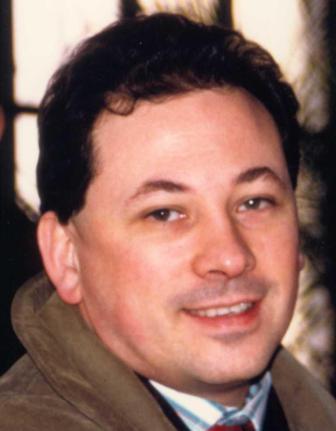
 +39 045 802 7980
+39 045 802 7980



